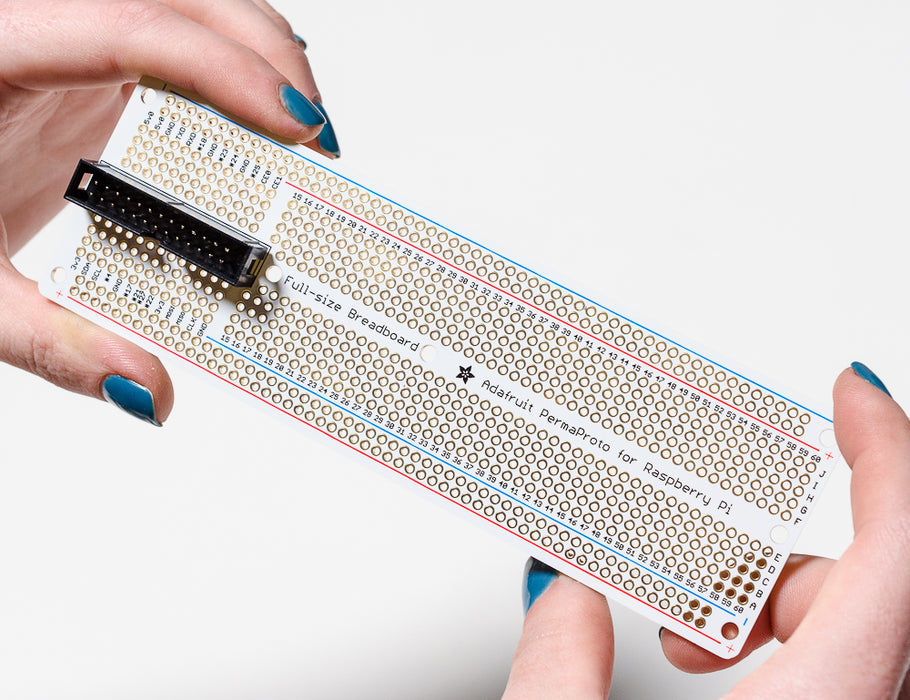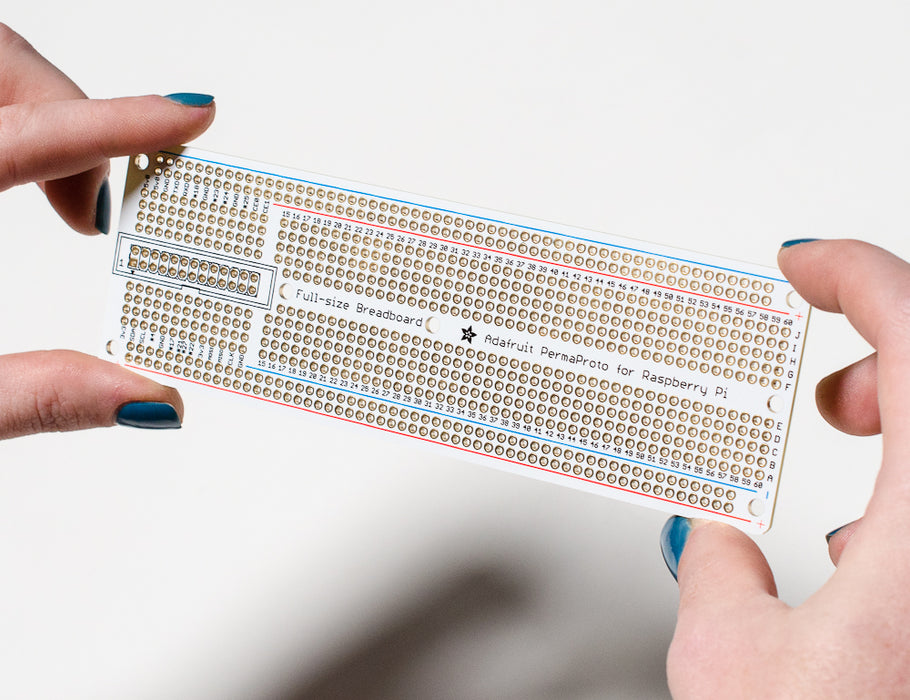
Adafruit Perma-Proto Raspberry Pi Breadboard PCB Kit
All prices are VAT included
We put a PermaProto full sized proto board in a blender with a Pi Cobbler and out emerged this very tasty confection - the PermaProto for Pi! It has the Cobbler baked right in. Simply solder the 2x13 pin header in and you get all the labeled breakouts with tons of prototyping space, power rails, mounting holes and that gorgeous silk.
Customers have asked us to carry basic perf-board, but we never liked the look of most basic perf: its always crummy quality, with pads that flake off and no labeling. Then we thought about how people actually prototype - usually starting with a solderless breadboard and then transferring the parts to a more permanent PCB. That's when we realized what people would really like is a proto board that makes it easy!
This proto-board is the PCB you always wish you had, but never realized it! We took the basic layout of a full-sized breadboard (the PCB has 60 rows instead of 63 rows) and turned that into a beautiful PCB. The top side has a white silkscreen, and the same markings you're familiar with, to make transferring components easy. The bottom has the 5-hole pad design that matches a classic breadboard, with 4 power bus lines on the sides, and no mask so you can easily cut traces when necessary. We used 1.2mm diameter drill holes so even parts with big leads will fit. All holes are thru-plated for strength - these wont peel off with rework. The finish is a gold plate - you won't get oxidation like with bare copper perf ! There are also tons of mounting holes so you can attach the PCB to your project box.
Comes with one PCB and one box header, you'll need to do a little light soldering to attach the box header to the PCB but its fast and easy to do. To connect it to a Pi, you'll also need a 26-pin GPIO cable if you don't already have one
- 13 rows of 4-pin holes breaking out the GPIO cable, 1 row or double 4-pin and 44 rows of double 5-hole rows
- 4 power rails with positive/negative markings
- 6.2" x 2.0" (160mm x 55mm), 0.063" thick FR4
- 1.2mm / 0.047" drill holes

